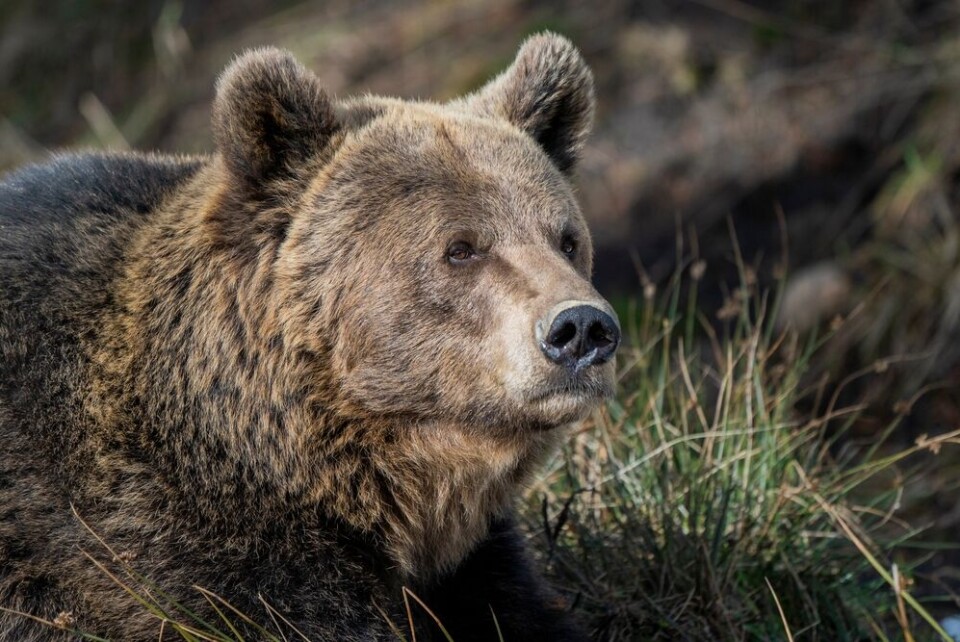-
Red flood alerts continue in south-west - and more heavy rain expected
Garonne river is particularly affected. French weekly weather forecast February 16 - 20
-
Car insurance fees set to rise - tips on how to make savings
Premiums are forecast to rise by four to six percent in 2026
-
Two Britons killed in avalanche in French Alps were with an instructor
French skier also died in the disaster at Val d’Isère on Friday February 13
Call for action over bears in France after hiker killed in Slovakia
Local authorities say we ‘cannot wait until someone dies’ in France to bring in changes

Mayors in the mountainous region of Ariège in southern France are calling for action against bears in the Pyrenees after a series of bear attacks in Slovakia.
Bear attacks in Slovakia - which have also happened in residential areas - have killed one hiker and injured five people. Last year a bear killed a 26-year-old jogger on a hiking trail in northern Italy, just 300m from his home village in the Trentino region.
Read more: Brown bear numbers grow in Pyrénées as jogger death reignites debate
In response, mayors of communes came together for an exceptional meeting of the Parlement de la Montagne (PAM 09) in the commune of Saint-Girons.
The president of the department, Christine Téqui, as well as head of the agriculture ministry of Ariège, president of the Fédération pastorale de l’Ariège, and local councillors were also present.
The measures and suggestions debated are set to be presented to the Parlement Avenir Montagne shortly.
Bears in France
Brown bears were reintroduced into the Pyrenees region in 1996. They came from Slovenia.
The animals are protected by a 1992 European Union directive, which requires France to maintain a viable bear population. Some scientists say that a ‘viable’ population means at least 150 bears.
There are around 75 bears in the Pyrenees currently, based on a recent count by the Office français de la biodiversité (OFB), and its Haute-Garonne-based ‘brown bear team’.
Of these, 69 are thought to be based in the central Pyrenees, including the Comminges region in Haute-Garonne, the Val d’Aran, Catalonia, Andorra, Aude, and the Pyrénées-Orientales. This also includes Couserans in Ariège.
After the death of Italian Andrea Papi pressure against the bears grew in France again with many farmers and locals opposed to their presence.
At the time, the French heritage association, L’Association de sauvegarde du patrimoine d'Ariège-Pyrénées, which is made up mainly of sheep farmers, said in a statement: “It's a fact. Reintroducing bears kills. Residents, holidaymakers, hikers, hunters, farmers, elected representatives…we must all act! Everything must change.”
The group is, along with other anti-bear campaigners, calling for “the bear project to be withdrawn from the irresponsible people who have imposed it in the Pyrenees, against the opinion of mountain users”.
‘Reintroduction of bears going badly’
At the recent meeting, the Ms Téqui said that Slovakia is a “comparable country, to whom the same promises were made [as those made to France] when bears were reintroduced, and which now has a high population of bears - around 100.
She condemned the situation, saying: “[We have seen] the aggressive killing of a jogger by a bear on a path, and now the victim is being accused, with people saying she should never have been there.”
She said that the reintroduction of bears in Romania, Slovakia, and Italy was “not going well”.
She also said that Trento - which is an autonomous legislative region - had, since the death of Mr Papi, introduced “a legislative solution” to the bear situation.
It has managed to “legally subvert the European Union directive on protected species”, she said, by bringing in “reasonable regulation on criteria such as the species’ capacity for survival, and the danger of the animal. It is “now legally able to remove up to eight bears a year”, she said.
Read also: Brown bear numbers growing in French Pyrenees after reintroduction
‘The state is in denial’
The mayors and presidents demanded why a similar agreement could not be drawn up in France.
“The state is in denial and is hiding behind Europe,” said Ms Téqui.
Another person present at the meeting said: “We can’t do anything in France, even ‘scaring’ procedures are pushed back. France is applying the European directives to excess. We must move the law along. We cannot just ‘wait and see’, as long as there is still this problem.”
‘Scaring measures’ can include the use of lights (torches, beacons) and sounds (bells, whistles, sirens). Non-lethal sound shots may also be permitted if the previous measures have not worked, and if the “livestock concerned has already suffered damages”, the government has previously said.
However, a decree states: “In the heart of the Pyrénées National Park, no heightened scaring measures can be authorised.” Even low-level scaring measures require authorisation from the park director, it adds.
Read more: France opens door to bear-scaring measures in the Pyrénées
Despite the local attendees at the recent meeting, other authority figures - including the prefect of Ariège and the ‘bear prefect’ (préfet Ours) - did not attend, despite having been invited.
“Two countries in Europe, two different situations. Why in France can we not suggest legal changes, nor discuss solutions?” said Ms Téqui, calling for the opening of a debate on the subject.
The group is also calling for a “more fluid process” when it comes to bear ‘scaring’ tactics, and “reasonable regulation with a focus on ‘so-called atypical’ bears.”
“You can’t just react emotionally from behind a hearse [when someone dies],” she added, suggesting that without further regulation, she fears another tragedy could occur.
Read also
Hunter fatally shoots bear in southwest France after it bit him
Hunter who shot bear in south France may have been in no-hunting zone
























